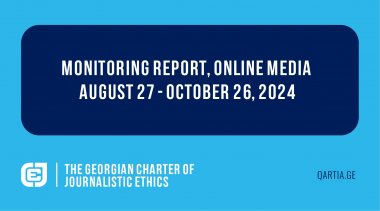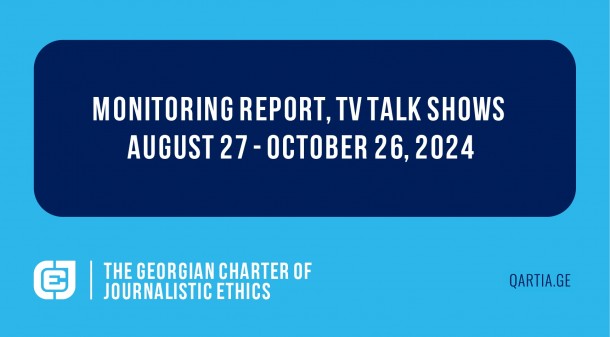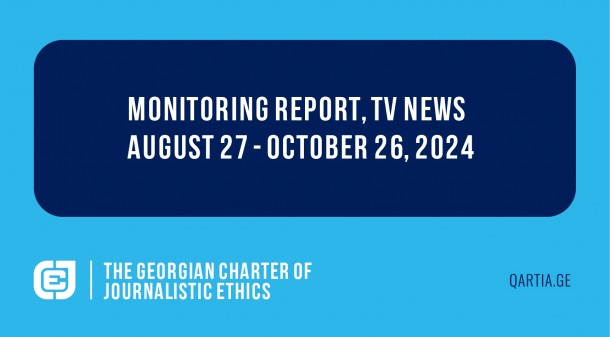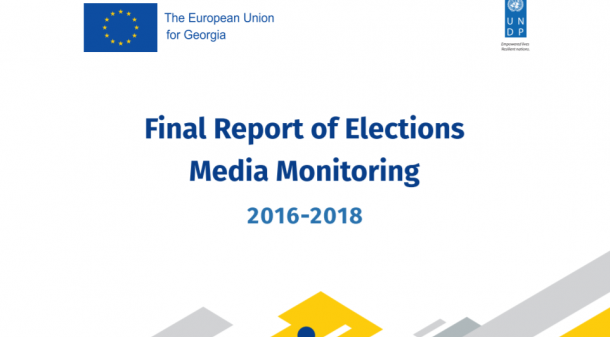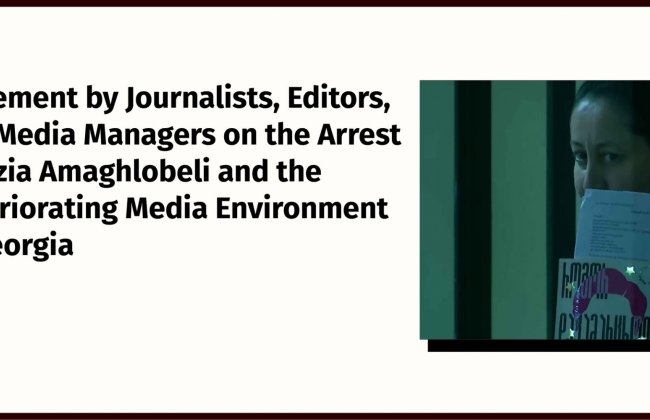20.12.2024
The Georgian Charter of Journalistic Ethics, with EU support, under the “Supporting Free and Fair Elections Cycle in Georgia” project, led by the International Society of Fair Elections and Democracy (ISFED), examined media coverage of election processes and electoral subjects.
The Charter observed media content by the following eight online media outlets: interpressnews. ge, netgazeti.ge, news.on.ge, primetime.ge, publika.ge, radiotavisupleba.ge, sputnik-georgia.com and tabula.ge, from August 27 to October 26.
The following key findings resulted from the qualitative analysis of the materials:
- In covering certain election-related issues, representatives of online media intentionally violated the principle of impartiality and followed a predetermined editorial policy that did not shun to use evaluative terms and contexts in their materials. This trend was observed even in some online media outlets whose adherence to high journalistic standards had been confirmed in a number of media monitoring reports of the past few years. This was largely due to the adoption of the Law on Transparency of Foreign Influence by the government in the pre-election period. This law, referred to by some online media as the “agents’ law” or the “Russian law,” places the media organizations funded by international organizations at risk of closure.
- Out of the eight websites selected for monitoring, two clearly exhibited a tendency to constantly portray the government in a positive light and, at the same time, to discredit opposition politicians.
- None of the monitored online media outlets demonstrated a particularly positive attitude towards any opposition party; however, only four opposition parties were covered most frequently: Unity – National Movement; Strong Georgia – Lelo, for the People, for Freedom; Gakharia For Georgia; and Coalition for Change – Gvaramia, Melia, Girchi, Droa.
- Instances of the use of hate speech or discriminatory language by journalists in their texts were almost absent. However, a problematic issue was that some online media outlets reported statements by politicians or other public figures containing such terminology and content without any modification or commentary.
- Some online media outlets covered the ruling party’s anti-Western messages and conspiracy theories, including disinformation in a one-sided manner, without comment, resulting in these media outlets being used by the ruling party to disseminate anti-Western propaganda.
- Common violations of journalistic standards observed in online media included one-sided reporting of facts and serious allegations. A majority of the websites selected for monitoring showed no efforts by journalists to verify specific allegations presented in the materials or to seek comments from the accused parties.
- A problem that persists in online media is the superficial coverage of topics. Most of the websites selected for the monitoring did not provide readers with in-depth and critical analysis of current events in the country.
For press release click here
For full report click here

